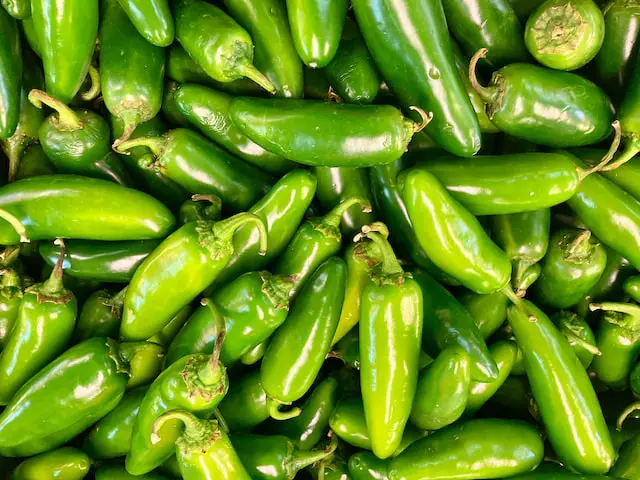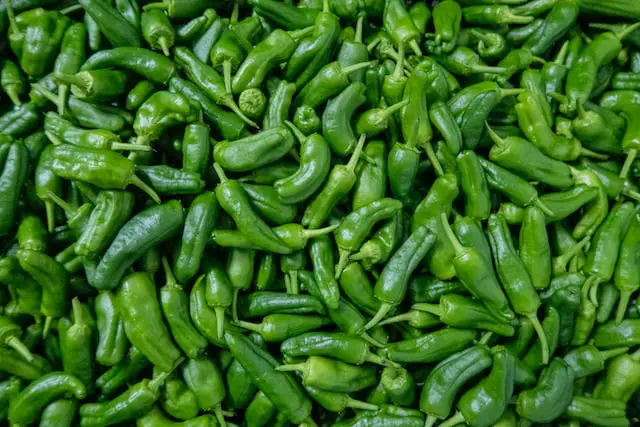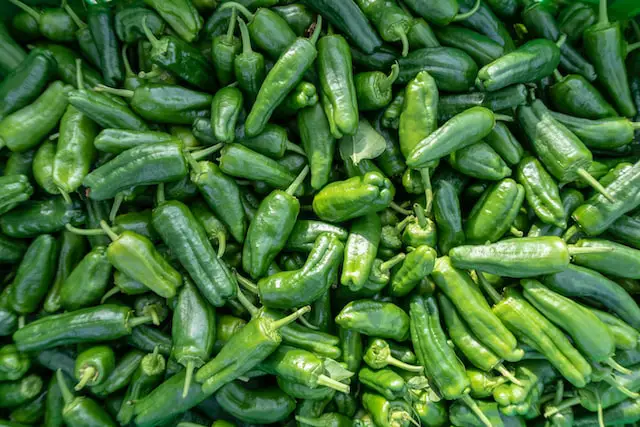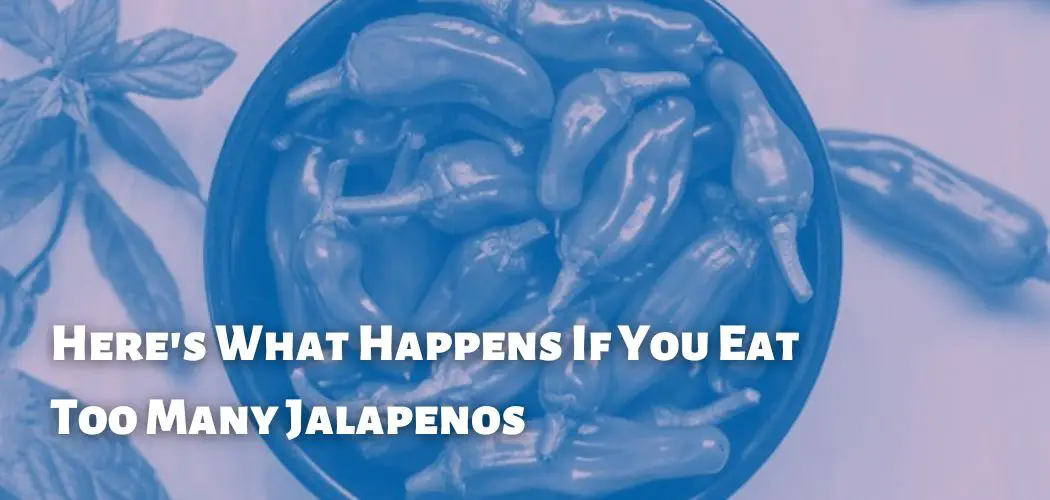Many people cannot tolerate the heat of jalapenos, whilst others relish the sensation. If you belong to the second category, consider yourself fortunate.
Jalapenos are nutrient-dense, containing vitamins K, C, and A as well as the strong antioxidant phytochemical capsaicin.
Jalapenos’ heat is caused by the compound capsaicin, but eating too much of it could be harmful.
Contents
People Like it Hot
The same active chemical used in pepper spray for self-defense is capsaicin. It is a highly potent chemical capable of causing severe damage.
However, these peppers have less capsaicin than both the spray and other peppers.

According to the Scoville Scale, which rates the heat of different peppers, jalapeno peppers range from 2,500 to 8,000, while pimento peppers have 100 to 500 heat units and pure capsaicin has 15,000,000.
Jalapenos rank below serranos, cayenne, and chipotles, and far below the habanero peppers and scotch bonnets.
Possible Health Benefits
For most individuals, the advantages of consuming these peppers outweigh the disadvantages. One cup of sliced jalapenos has 21% of the daily value of vitamin E, 14% of the daily value of vitamin K and 119% of the daily intake of vitamin C.
The capsaicin component of jalapenos confers additional potential benefits. Capsaicin may conceivably:
Prevent bacterial growth
In 2015, a study was published that investigated capsaicin’s anti-virulence and antibacterial activity against Streptococcus pyogenes and found that it inhibited the breakdown of red blood cells, intracellular invasion and the spread of infection into deep tissues.
Aid in Fighting Infections
Herbs and spices have been used for centuries to prevent food deterioration and food illness.
Compounds present in fiery jalapenos are particularly effective at inhibiting the growth of ordinary yeasts and food-borne bacteria.
Even cholera bacteria can be prevented from manufacturing toxins by chili extracts, potentially decreasing the severity of this deadly foodborne illness.

New research reveals that, in addition to food poisoning, capsaicin can help prevent diseases such as bacterial tooth decay, chlamydia and strep throat.
It is important to note, however, that all of these studies were performed in test tubes rather than on actual people, and that they all used chili extracts rather than whole chilies.
Helps Fights Cancer
According to a review published in Anticancer Research in 2016, capsaicin affects the expression of genes involved in cancer cell survival, growth, proliferation, and dissemination.
Aid In Weight Loss
A review published in the International Journal of Obesity in 2016 revealed that the potential of capsaicin to enhance energy expenditure, decrease appetite, and boost fullness could aid a weight-reduction program for obese individuals and maintain weight loss.
Natural Pain Reliever
Capsaicin is an excellent topical analgesic when applied topically.
It relieves pain by temporarily blocking pain receptors at the site of application. Initial symptoms may include a burning feeling, followed by numbness and the absence of pain.
Capsaicin lotions and patches are often used to treat pain resulting from herpes zoster, diabetic nerve pain, and chronic muscle and joint pain.

In one study, elderly people with rheumatoid arthritis who applied capsaicin lotion to their joints saw a 57% reduction in pain. Compared to the placebo cream, this was substantially more effective.
Over Consumption May Cause Problems
Due to their relatively low heat units, jalapenos are unlikely to inflict much harm. However, here are a few possibilities:
According to National Capitol Poison Control, excessive consumption of spicy peppers can cause nausea, vomiting, abdominal pain, and diarrhea. As you consume more peppers, the burning feeling in your mouth and throat may intensify.
Kidney Damage
The Summit Medical Group warns that long-term consumption of excessive amounts of capsaicin might cause renal damage. If you already have renal problems, you should consult your doctor before consuming large quantities of jalapenos.
Heart Burn
Harvard Medical School recommends avoiding spicy foods if you suffer from heartburn. It is safe to state that consuming an excessive amount of jalapenos would not be wise.
Asthma
According to the National Capitol Poison Control, inhaling chili peppers can trigger an asthma attack. If you have asthma and consume a large number of jalapenos, your risk is raised.
Tame The Fire
The seeds of the peppers are where the majority of the heat resides, so simply remove the seeds if you want to enjoy jalapeno peppers but wish to reduce the intensity at the same time.
Additionally, peppers can be cooled by boiling or pickling them. Remove the seeds, then roast and peel the peppers. To pickle cucumbers, slice them into rings, remove the seeds, and marinate them in sugar, salt and vinegar.
Conclusion
Jalapenos are an adaptable and healthy fruit that may be consumed in numerous ways.
They include the chemical capsaicin, which is likely responsible for many of its health benefits, such as weight loss, pain relief, enhanced heart health, and a reduced risk of ulcers.
While they are generally harmless, some individuals may experience a transient burning sensation in the mouth and unpleasant digestive side effects.
Jalapenos can be a healthy addition to your diet if you appreciate spicy food and do not experience any adverse effects.
